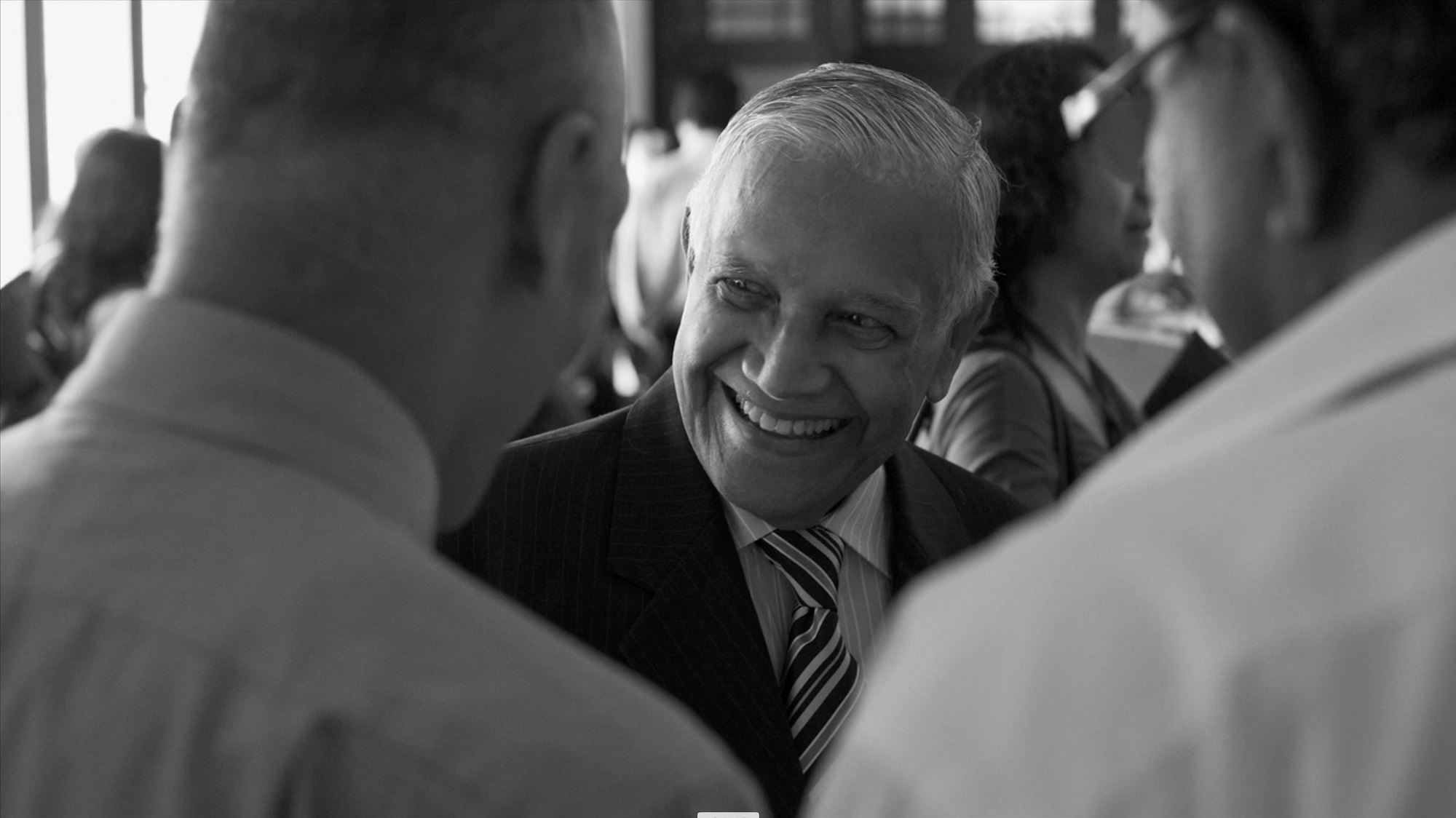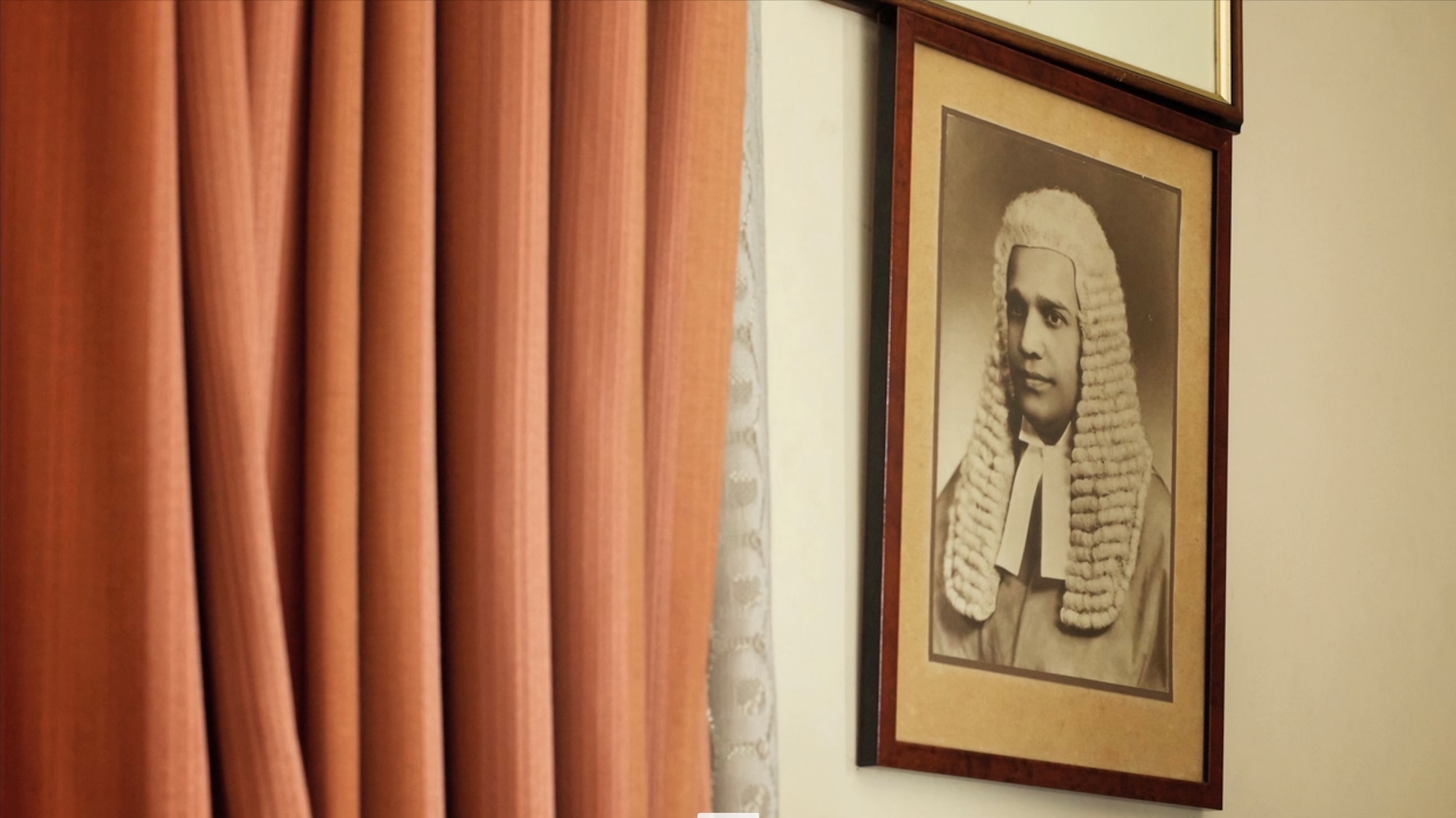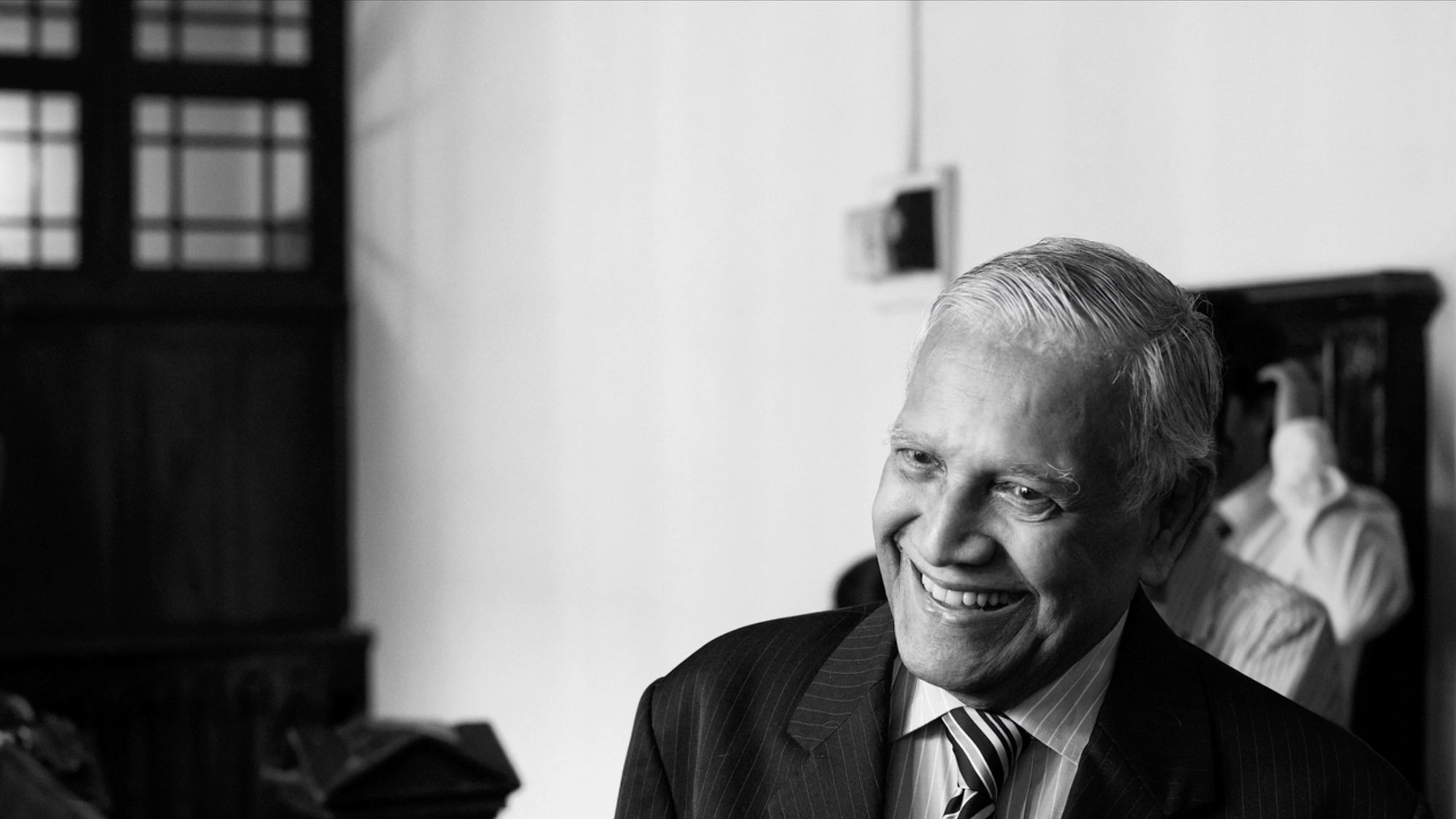The judge
Christopher Weeramantry
Judge Christopher Weeramantry is a former judge of the International Court of Justice and the senior-most retired judge in Sri Lanka. His campaign against nuclear weapons proliferation is famously captured in a dissenting judgement during his tenure at the ICJ, as well for respecting the environment. Taking inspiration from his elders and borrowing from the wisdom of world religions, the judge has been spreading his message of peace for decades.


Transcript and translations
Language
By the time the law had taken one step ahead. Technology had taken ten.
Technology is wonderful, it has achieved the most dramatic results. All that is fine. But technology is always to be considered as being an instrument of service to the community, not an instrument for dominating the community.
Now, there was technology in ancient China, in ancient Egypt, in Islamic civilisation, in Hindu civilisation… gunpowder and the mariners, compass and various other things like that were known, but they were all kept within community controls. There was a certain code of conduct, a certain code as to how that super knowledge should be used for the benefit of society.
So China had gunpowder, but it was not used in the destructive way in which it is now used. Then in India, we read in the Mahabharata and the Ramayana that there was a hyper destructive weapon that was known which could ravage the enemy’s countryside and decimate the enemy’s population. And this was even offered to Rama in his war against Ravana. But Rama was also told, consult the sages of the law before you use it. And they said it cannot be used in any circumstances whatsoever because war is waged, if at all, to subdue your enemy and live in peace with him, not to ravage his countryside and destroy his population. And Rama did not use it.
And that way the rulers of that time were far more civilised than the rulers of today because they consulted their legal advisors and they obeyed their instructions, which is, I’m afraid, not the same today. So there was technology and it was kept to be used for the service of the people. And if there’s dangerous technology, it was even kept under wraps. But what happened was that when technology came to the western world, there was lack of controls. And going to this lack of control, technology actually went ahead at a terrific rate and it reached a stage where technology was outstripping even the ability of the law to keep it in check.
So technology was forging ahead, law was trying to keep it within control. But by the time the law took one step ahead, technology had taken ten. And technology was every day getting further and further away from legal control. So I was very concerned about all this because I thought that the law was to blame in not addressing this problem earlier. And I wrote a book published by Penguin, many, many years ago called The Slumbering Sentinels: Law and Human Rights in the Wake of Technology. And the penguin artist drew for the front cover a picture of a judge in full judicial robes, fast asleep on the bench.
Now, this was an influential book, I think, and it was even referred to by the Secretary General of the United Nations in a report he wrote to the UN organisations. And there it was stated that — he went chapter by chapter analysing what I had said — that unless we heed the words of warning of this author, we will ourselves become members of the club of slumbering sentinels. Those were the words in the Secretary General’s report. So this stirred up the UN community. It became clear that technology was getting out of legal control.
So I have raised a campaign as far as I can to bring technology under legal control. And I was particularly worried about weapons technology and nuclear technology. I was very worried because everybody knows that the nuclear weapon can destroy civilisation. Everybody knows that the governments and the generals should not use it. But so far the law has lagged behind and not prohibited it completely.
Later on…in later years, when I was a member of the International Court, I was able to write a very strong dissenting opinion saying that nuclear weapons were totally illegal in any circumstances whatsoever. But long before that, when I was writing — this was in my days at Monash — I thought it should be considered whether an ethical code should be drawn up for nuclear scientists.
So I drafted an ethical code for nuclear scientists and that was widely disseminated. I was looking the other day at a book called The Encyclopaedia of Social Inventions, published in London, where they take 500 of the best ideas for the improvement of the human condition. And they had included my draft of the ethical code for nuclear scientists among those 500 ideas.




Leave a comment